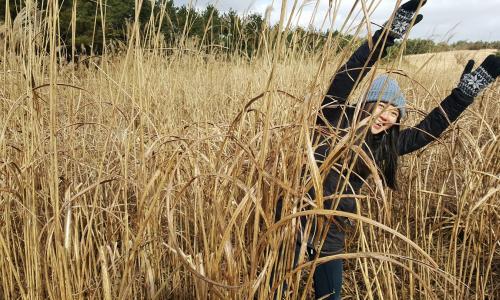
With the rise and widespread use of social media today, personal branding is a hot topic. Your personal brand is basically how people perceive you, and how you market yourself to others. Many students may not be aware that they need to conduct themselves professionally through online media such as Facebook, LinkedIn, and Twitter, because their future employers are now looking at their online presence.
Today, it is easy for someone to do a Google search of your name and learn a great deal about you. Creating, maintaing, and controlling your online "brand" is so important. You want to have a positive online presence and to be seen in a professional light. For the student and most people, your personal brand will essentially help you in your career search and land that coveted job!
Your Online Presence
How you conduct yourself online is just as important as how you present yourself professionally in public. The most popular online tool that most employers are looking at when they hire people is their LinkedIn profile. This profile establishes your identity, which boasts all your relevant job experiences and accomplishments. Very similar to your resume, this online profile helps you differentiate yourself from others. In addition to this, employers may look at your Facebook and Twitter pages as well. It is very important to remove incriminating photos or statuses from your profiles, as this may reflect negatively on you when they are screening your applications. Remember to actively maintain and keep an up-to-date profile too!
Work Search Tools
Your resume and cover letter helps establish your identity on paper, and ultimately sets you apart from other applicants so that your prospective employers will shortlist you for an interview! Your personal brand on these documents may include a unified design that looks aesthetically pleasing; to action statements outlining your responsibilities and the results of your work (e.g. wrote two articles weekly for the online Career Services’ Insider Blog, which generated over an average of 200 views, per article). Another good tip is to include links to your online profiles (such as LinkedIn or Twitter) on your resume and/or blog, which shows your knowledge of social media! You may also want to have a good branded business card that lists your name, your online channels, ways to contact you, and of course an aesthetically pleasing design that defines who you are.
Networking
Do not forget about your personal branding offline as well, and this is where you can build your positive reputation, through networking. Go to networking events, and learn how to build positive, healthy relationships. Ask questions, make conversations, and actively listen to others. You may want to ask the people you meet if you can add them on LinkedIn (if they also have an online presence). Do not forget to pull out your business card too!
Your personal brand is a dynamic, living presence, and can be compared similarly to a business or a product. How you sell the product (you), can make a difference when it comes to meeting people and getting that opportunity you have always wanted! Remember, staying positive, and keeping your personal brand up-to-date will make you a very marketable and appealing (and we do not mean this physically) person!
Beyond the Blog
- Visit the Career and Work Services to explore career opportunities!














